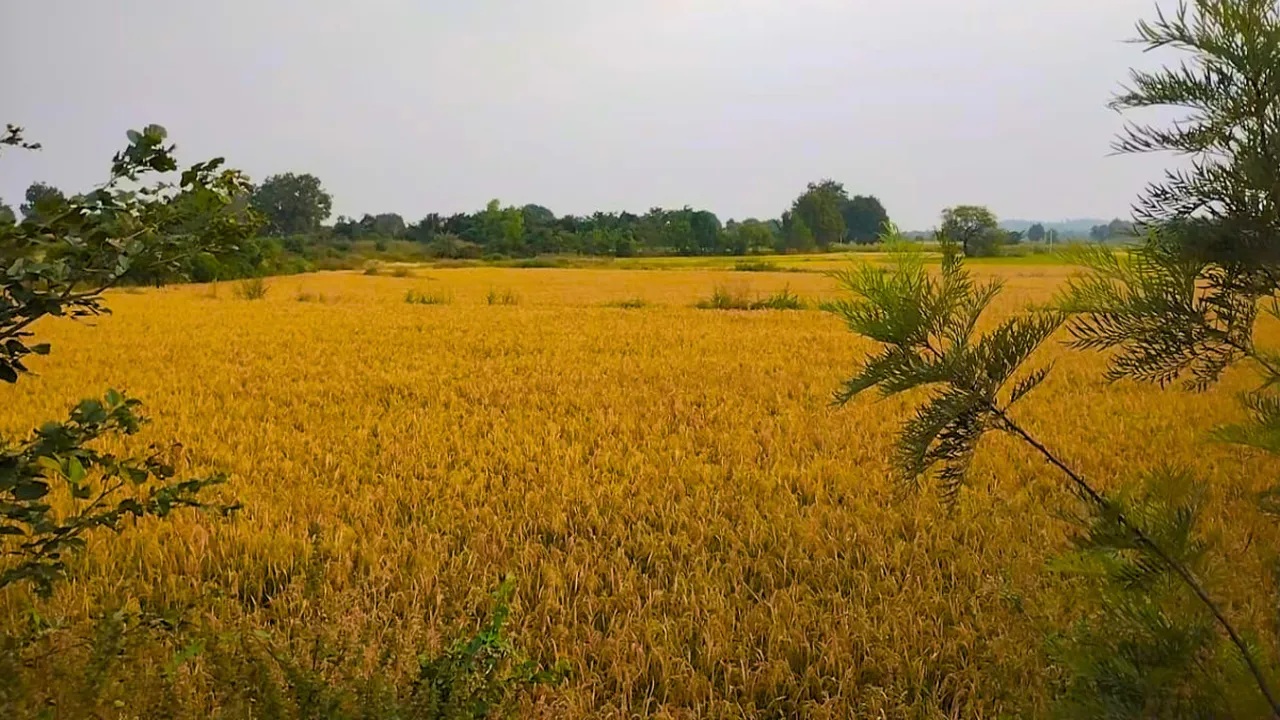The introduction of gene-edited rice may contaminate native seed varieties, affecting export potential, especially to countries with strict GM-free import standards.
Published May 21, 2025 | 6:08 PM ⚊ Updated May 21, 2025 | 6:08 PM

Telangana Agriculture and Farmers Welfare Commission Chairman M Kodanda Reddy said the stakeholders were not consulted before the Centre made the 'critical decision' to introduce gene-edited rice in the market. (Representational picture)
Synopsis: As one of India’s largest rice-producing states, with a vibrant rice economy built on diverse traditional and improved varieties, Telangana has much to lose from any ecological or market disruption caused by such technologies.
Telangana Agriculture and Farmers’ Welfare Commission has strongly protested against the Union government’s approval and release of gene-edited rice varieties in India.
In a hard-hitting letter to Union Agriculture Minister Shivraj Singh Chouhan, the Commission Chairman, M Kodanda Reddy, said the Centre’s “critical decision” would have “far-reaching consequences for the country’s food system and biodiversity.”
Conveying the concerns of Telangana farmers, citizens, and civil society stakeholders, Reddy flayed the Centre for making such opaque critical decisions without public consultation.
Calling for a moratorium on releasing and farming gene-edited rice, he recalled the undivided Andhra Pradesh government rejecting the introduction of genetically modified crops due to concerns over biosafety, environmental risks, and the livelihoods of lakhs of farmers in the state.
As one of India’s largest rice-producing states, with a vibrant rice economy built on diverse traditional and improved varieties, Telangana has much to lose from any ecological or market disruption caused by such technologies.
Genome (gene) editing enables scientists to make targeted changes in the native genes of living organisms, creating new and desirable traits. India has developed two gene-edited rice varieties, RR Rice 100 (Kamala) and Pusa DST Rice 1.
The Agriculture Commission Chairman said that consumers across the country, including in Telangana, had not been consulted on the implications of gene-edited foods entering the market. With rising public awareness on food safety, traceability, and labelling, there is a growing consumer resistance to genetically modified (GM) and gene-edited foods, especially in staple crops like rice.
He said that there were currently no mandatory labelling guidelines for gene-edited products, denying consumers their right to informed choice. He added that Telangana’s ecosystem supports over 15 lakh farmers and contributes significantly to national food security through procurement by the Food Corporation of India.
The introduction of gene-edited rice may contaminate native seed varieties, affecting export potential, especially to countries with strict GM-free import standards.
Reddy said farmers might be forced into dependency on proprietary seed technologies, threatening their right to save and exchange seeds under the Protection of Plant Varieties & Farmers’ Rights Act. He said the state had witnessed the sad and pitiable experience of cotton farmers with Bt Cotton and illegal Herbicide Tolerant Bt Cotton.
He stressed that decisions impacting India’s food sovereignty must not be driven by a narrow technological agenda or corporate interests. He demanded an immediate moratorium on the release and commercial cultivation of gene-edited rice, pending independent scientific review and full consultations with state governments, scientists, farmers, and consumers.
(Edited by Majnu Babu).
